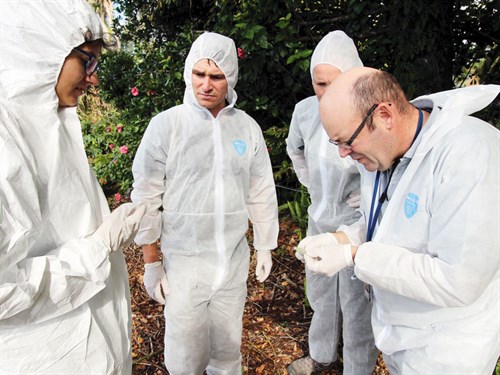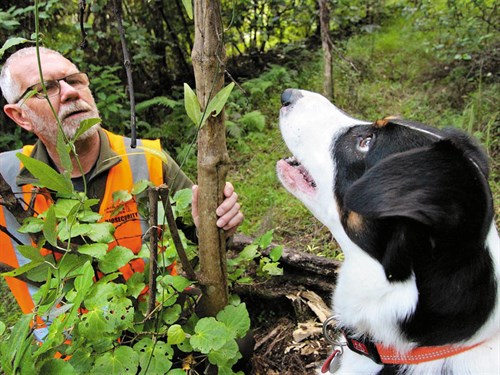Watch out for Myrtle Rust

Confirmation of new myrtle rust discoveries in the Kerikeri and Mangawhai areas has prompted a plea from biosecurity officials for Northlanders, and visitors to the area, to continue to report any suspected cases of the serious fungal plant disease.
The latest Northland discoveries come just a month after the Ministry for Primary Industries (MPI) and Department of Conservation (DOC) announced that—given the prevalence of the rust across susceptible parts of New Zealand—the fight against it was ‘changing gear’.
With more than 50 infected trees over 20 sites covering six square kilometres in Kerikeri alone, news that the rust had reached other parts of Northland was disappointing but not unexpected given the ease with which it could spread.
Northland Regional Council (NRC) biosecurity manager, Kane McElrea, encourages Northlanders to check their properties for signs of the rust but stresses if they do discover what they think are myrtle rust symptoms, it’s extremely important not to touch the suspicious plant.
“Myrtle rust spores are microscopic and can be easily spread across large distances by wind, or via insects, birds, people, or machinery, so instead of touching a suspicious plant, call the MPI hotline immediately. If you have a camera or phone camera, take clear photos, including the whole plant, the whole affected leaf, and a close-up of the spores or affected area of the plant.”
Information about myrtle rust is available from the MPI website, mpi.govt.nz.
Clever canines

A dozen Northland local authority staff and keen members of the public have been working with a Southland-based expert to learn the skills they need to train their pet dogs to search for unwanted pest plants and animals.
The NRC says the shift from humble pet pooch to part-time biosecurity hero is not as difficult as it might seem, but to be done effectively, still takes two to three months and requires certain kinds of dog with the right temperament, including a ‘busy’ work ethic.
However, council biosecurity officer Sara Brill says the first—and arguably the most crucial—part of the process is not about the dog at all; it’s to make sure the person training their pet is themselves suitably upskilled.
To that end, Invercargill-based trainer John Taylor and his eight-year-old border collie Rusty spent several days in Whangarei recently teaching council staff and interested members of the public how to train their pets to find unwanted pest plants.
Sara says one of the key advantages biosecurity dogs offer over human searchers is that they can efficiently and quickly track every single unwanted plant—no matter how small—in a large target area.





